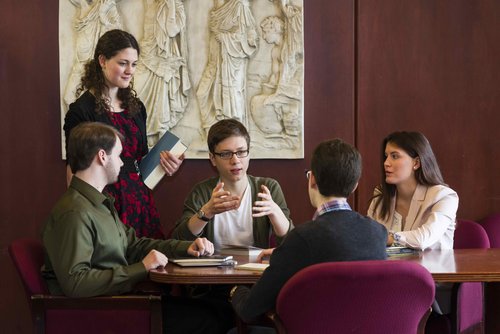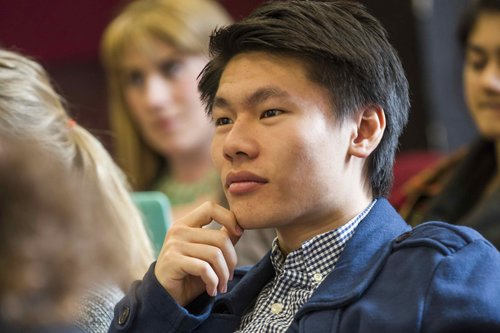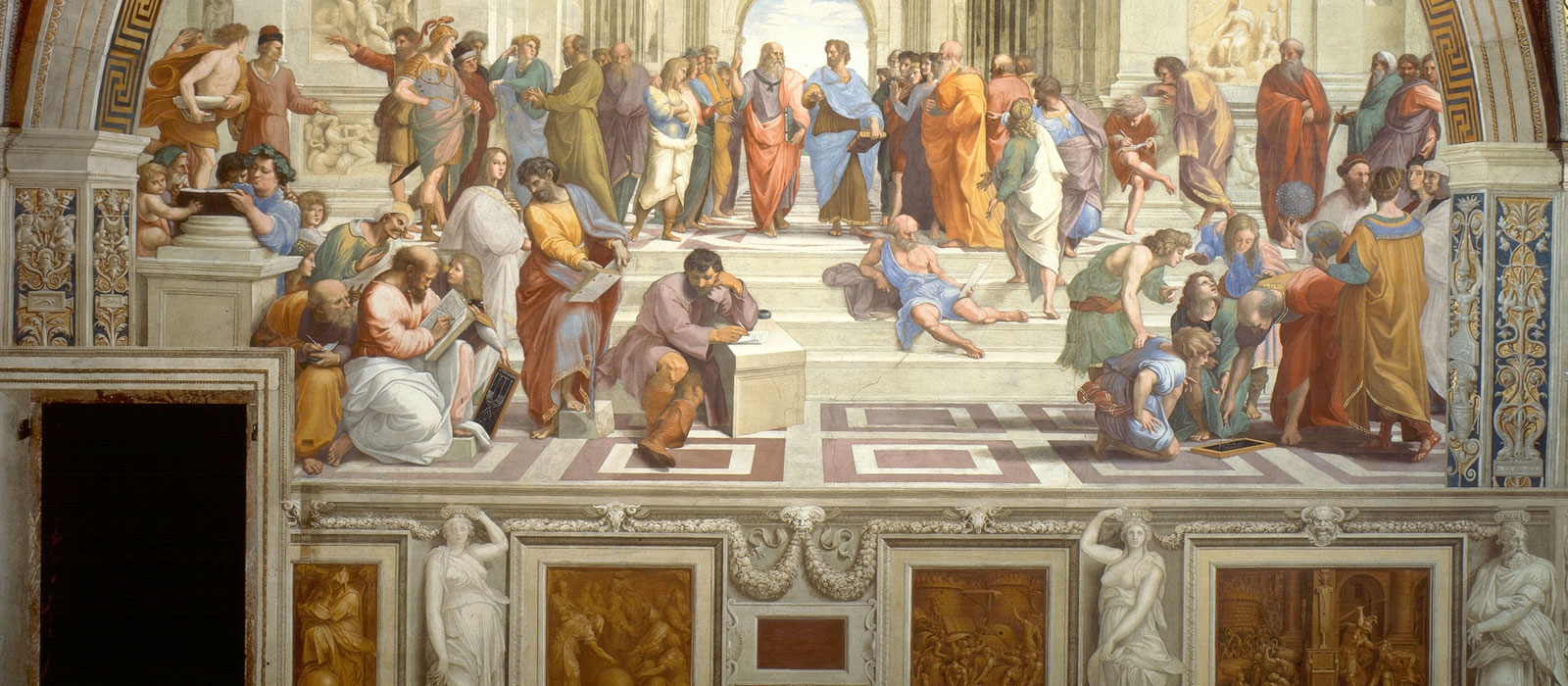There are two main reasons to study the Humanities. The first is for the sheer love of books, ideas, and discussion. The second is that training in Humanities makes you competent and confident and will help you go on to a rewarding career.
Study Humanities for the Love of Ideas
This program is for students who love to read and who love to discuss big ideas. Whether you like adventure stories like the Odyssey, plays about angst-ridden revenge like Hamlet, or romance and social critique like Jane Austen’s Sense and Sensibility, in this program you will find friends like yourself. Our students love conversation, and are open to new experiences, whether that be learning about foreign films or attending performances of things like Stravinsky’s Rite of Spring (which caused a small riot in the theatre when it premiered in 1913).
Are you interested in opening yourself up to new points of view? Do you want to learn how the Ancient Greeks thought about their gods? Do you want to be attentive to the Tao in our busy world? Do you want to hear the story of Gilgamesh, who sought eternal life, in vain, after the death of his friend Enkidu? Do you want to expand your conception of the world with unfamiliar ideas — possibly disorienting, possibly liberating — by learning about the Platonic idea of the divine Mind, Machiavelli’s advice on how to seize political power, Nietzsche’s proclamation that God is dead, or Gandhi’s doctrine of non-violent resistance?
Are you interested in understanding the context and historical background of your own culture, the core values that have formed our society, as well as those that have formed societies around the world? Do you wonder whether your first duty is to yourself, your family, or to the community at large? Would you prosecute a family member if they have broken the law? Are you curious about how great thinkers in different times and places have answered such a question?
It is ok if you don’t recognize these books and authors yet. We will introduce you to Plato, Confucius, Shakespeare, Mary Shelley, and others, and we will invite you to come to your own conclusions about them. It will be ok if you don’t always agree with these authors’ conclusions. When you need your professors’ help to turn obscurity into clarity, we will be there. But by reading, writing, and discussing, you will be the one who becomes able to understand, judge, discern good from wrong, and to give reasons to pursue one thing rather than another in your own life. In conversation with what others have thought before you, you will be able to think freely for yourself.
Are you are open to a challenge? In Humanities you will read some of the most exciting and profound books ever written, and we will help you learn to write papers that meet high standards of scholarship. More than in most other programs in the Faculty of Arts, you will have to relate what you learn in one course to what you learn in your others.
But the journey is exhilarating, and the finished product is a more fulfilled self.

Career
If you want to broaden your horizons and become a more engaged citizen, Humanities is for you. What students learn in the Humanities stays with them. Because they enjoy attending plays and concerts while in school, they continue to take part in the arts for the rest of their lives. Because they love learning about other cultures, traveling often becomes their passion. Because they spend four years thinking about questions of justice and political legitimacy, they learn to pay attention to what is at stake in local, provincial, and federal politics.
If you want a career that is intellectually and morally satisfying, Humanities will help get you there. Whether you go on to a profession such as law, teaching, or medicine, or choose a different career path, the Humanities will teach you not to settle. It will help you discover what kind of work you will enjoy, and how you will want to make a difference in the world. It will hold out the ideal of a career that sustains your love of ideas and discussion, and that becomes a rewarding part of your life. Whatever field you choose, your years of study in the Humanities will make it easy to acquire the skills needed for your workplace.
For examples of Humanities graduates who have gone on to fulfilling careers, see our Alumni Careers page.
Why Not Simply do a Bachelor of Arts?
Lauren Morry (B.Hum. 2017), DPhil Candidate in Theology and Religion, Oxford University
The Humanities program has two main advantages over a standard Bachelor of Arts.
First, because the courses in the curriculum are designed to work together, students can use what they learn in one course as the background for later courses. The result is that Humanities students end up working at a much deeper level than is possible in most Arts degrees. This gives them a much better sense of the shape of Western culture as a whole, and a better idea of its global context. It also lets their professors give them the most difficult texts and demand a high level of reflection, which helps Humanities students develop the highest skill in reading, writing, and discussion.
Second, the Humanities program is a small community of students and professors. This is something that most Arts students do not have. Humanities students receive a much higher level of attention from their professors than is possible in a standard Arts degree. They are surrounded by friends who are studying the same things they are, and who are as excited to discuss ideas as they are. This level of community is rewarding in itself, but it also helps Humanities students excel in their studies.
And Humanities students are able to do a Combined Honours in any Arts subject. So a student who is particularly interested in English or Philosophy, for example, can study their favourite subject in depth, while gaining the historical and global context for that subject from the rest of their Humanities degree.

